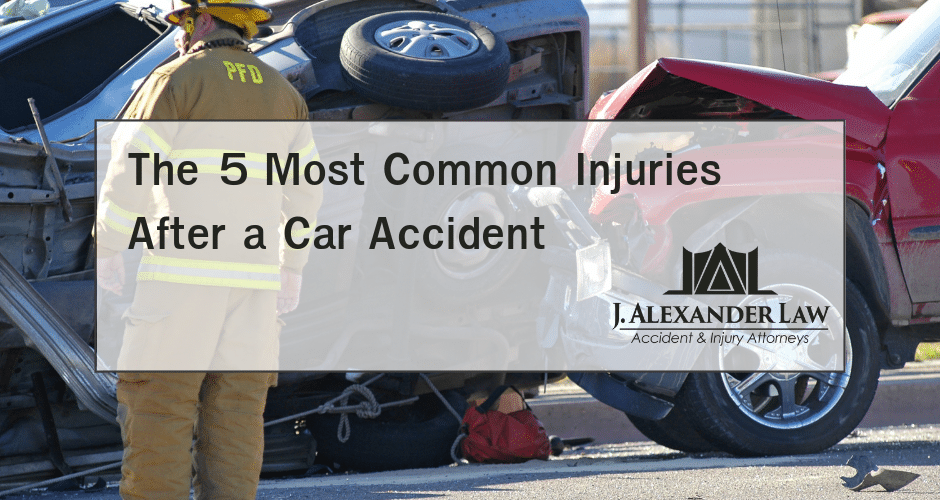Being in a car crash is traumatic – and if you’ve been injured, you may be trying to focus on your recovery at home or in the hospital. Many injuries are immediately apparent, like broken bones, but some injuries don’t even show up for days or weeks after the accident. Some of the most common injuries after a car accident include:
- Neck and back injuries, including whiplash
- Head and brain injuries
- Broken bones
- Soft tissue injuries and organ damage
- Spinal injuries
You should always seek medical attention after a car crash, even if you don’t think you’re injured or you think you were just in a small “fender bender.” And whether your injuries are minor or so severe that you’re not sure whether you’ll be able to work again, you might want to get in touch with a car accident lawyer.
Most Common Injuries After a Car Accident
When you’re involved in a car accident, your body keeps moving – but the car often comes to a stop. It’s this impact that causes most crash-related injuries, although secondary injuries (like burns) are definitely possible, too. It’s important that you know not all injuries show up right away. After a crash, your adrenaline levels will skyrocket, which can mask the symptoms of an injury. Some injuries manifest gradually, like some forms of traumatic brain injury, and still others can’t be seen without X-rays or other imaging tests, like organ damage.
Neck and Back Injuries, Including Whiplash
Whiplash, one of the most common injuries during a car accident, is caused when the car you’re in stops abruptly but your head keeps moving in the direction of travel. Essentially, whiplash is the result of traumatic damage to the muscles and tendons in your neck. You may also suffer from back injuries such as herniated discs, sprains and strains to the muscles along your spine, or torn muscles.
Head and Brain Injuries
If you hit your head during a car crash, you could have external injuries, like lacerations (cuts) and bruises on the outside and a traumatic brain injury on the inside. Cerebral fluid acts like a cushion for your brain, preventing it from hitting the inside of your skull – but it can only do so much when you’re in an accident. When it does hit the inside of your skull, you could suffer permanent damage.
Broken Bones
Broken bones are incredibly common injuries after a car accident – even if the crash was minor. Broken bones can be tremendously painful, and in some cases, they require multiple surgeries to fix. Bones take a long time to heal, so you may be out of commission for months.
Soft Tissue Injuries and Organ Damage
Muscles, tendons and ligaments are all considered soft tissues, and they can all be hurt in a car accident. The pain can be extreme, and in many cases, the best way to heal a soft tissue injury is to avoid using the body parts involved. Organ damage is always serious and requires medical treatment. The most commonly damaged organs include the spleen, liver and kidneys, although the force of a crash can hurt other organs, as well.
Spinal Injuries
Spinal cord injuries can result in paralysis – and it can be permanent. There are two types of spinal injury: complete and incomplete. A complete injury is one in which there’s no function below the injury, while an incomplete injury means there’s still some function below the injury. Both can occur at any place along the spinal cord.
A Word on Invisible Injuries
Emotional injuries after a car accident aren’t always immediately obvious. In fact, post-traumatic stress injury can’t even be diagnosed until several weeks after the crash – but like physical injuries that you can see with your eyes or through medical scans, it requires professional treatment.
Have You Suffered One of These Common Injuries After a Car Accident?
If you’ve suffered an injury after a car crash, we may be able to help you get the financial compensation you deserve. Call us right away at 833-214-HURT and we’ll come visit you at home or in the hospital to talk about whether you may be entitled to money that helps pay your medical bills, make up for lost wages and covers your future medical treatment.



